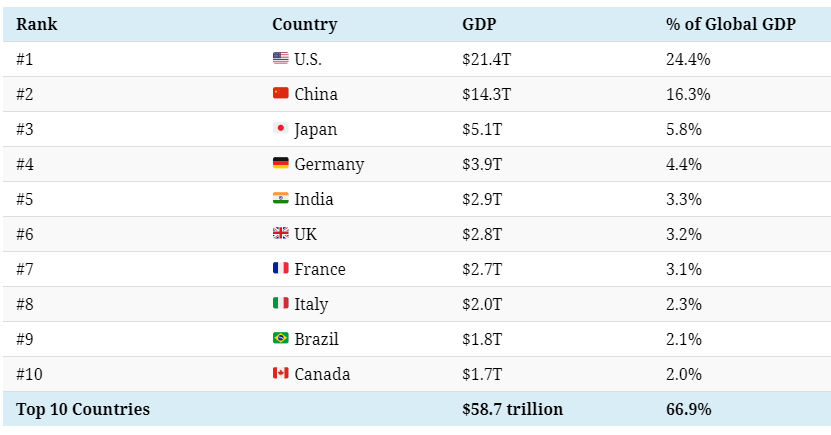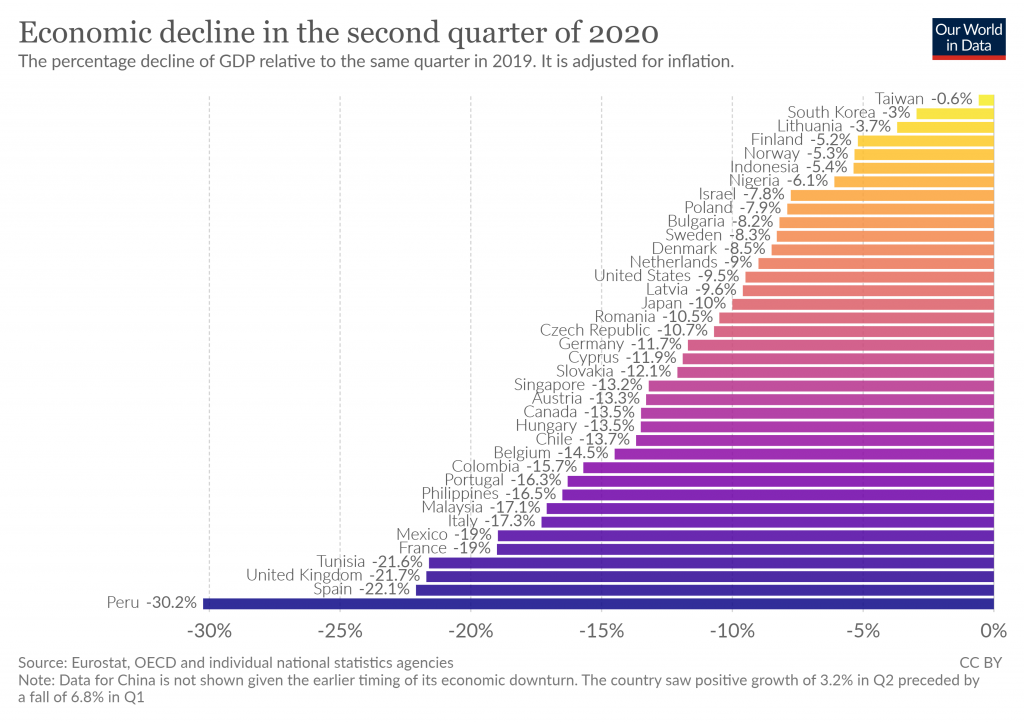The $88 trillion world economy in one chart

The $88 trillion world economy in one chart
The global economy can seem like an abstract concept, yet it influences our everyday lives in both obvious and subtle ways. Nowhere is this clearer than in the current economic state amid the throes of the pandemic.
This voronoi-style visualization from HowMuch relies on gross domestic product (GDP) data from the World Bank to paint a picture of the global economy—which crested $87.8 trillion in 2019.
Editor’s note: Annual data on economic output is a lagging indicator, and is released the following year by organizations such as the World Bank. The figures in this diagram provide a snapshot of the global economy in 2019, but do not necessarily represent the impact of recent developments such as COVID-19.
Top 10 countries by GDP (2019)
In the one-year period since the last release of official data in 2018, the global economy grew approximately $2 trillion in size—or about 2.3%.
The United States continues to have the top GDP, accounting for nearly one-quarter of the world economy. China also continued to grow its share of global GDP, going from 15.9% to 16.3%.

In recent years, the Indian economy has continued to have an upward trajectory—now pulling ahead of both the UK and France—to become one of the world’s top five economies.
In aggregate, these top 10 countries combine for over two-thirds of total global GDP.
2020 economic contractions
So far this year, multiple countries have experienced temporary economic contractions, including many of the top 10 countries listed above.
The following interactive chart from Our World in Data helps to give us some perspective on this turbulence, comparing Q2 economic figures against those from the same quarter last year.

One of the hardest hit economies has been Peru. The Latin American country, which is about the 50th largest in terms of GDP globally, saw its economy contract by 30.2% in Q2 despite efforts to curb the virus early.
Spain and the UK are also feeling the impact, posting quarterly GDP numbers that are 22.1% and 21.7% smaller respectively.
Meanwhile, Taiwan and South Korea are two countries that may have done the best at weathering the covid-19 storm. Both saw minuscule contractions in a quarter where the global economy seemed to grind to a halt.
Projections going forward
According to the World Bank, the global economy could ultimately shrink 5.2% in 2020—the deepest cut since WWII.
See below for World Bank projections on GDP in 2020 for when the dust settles, as well as the subsequent potential for recovery in 2021.

More News
{{ commodity.name }}
{{ post.title }}
{{ post.date }}




Comments